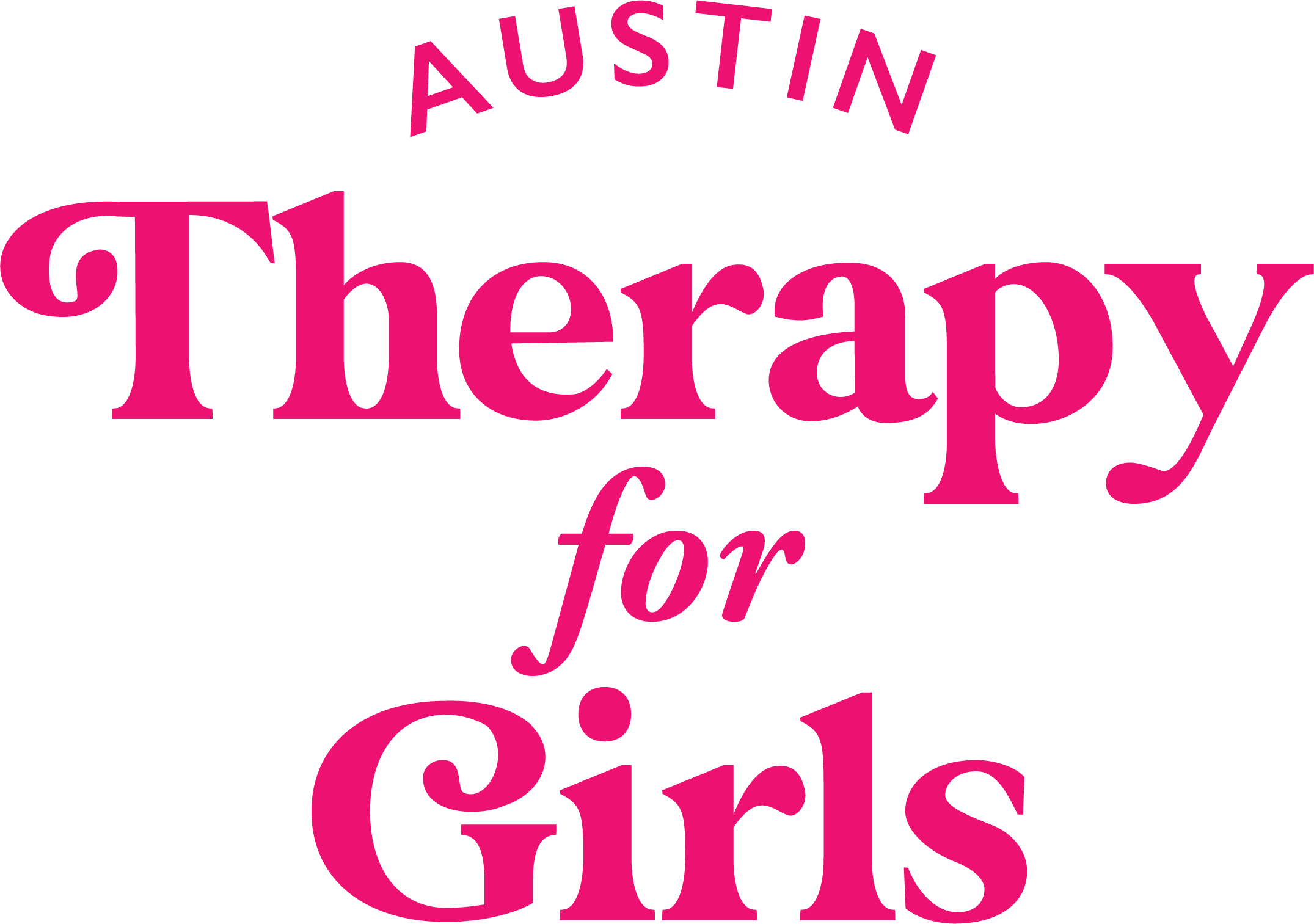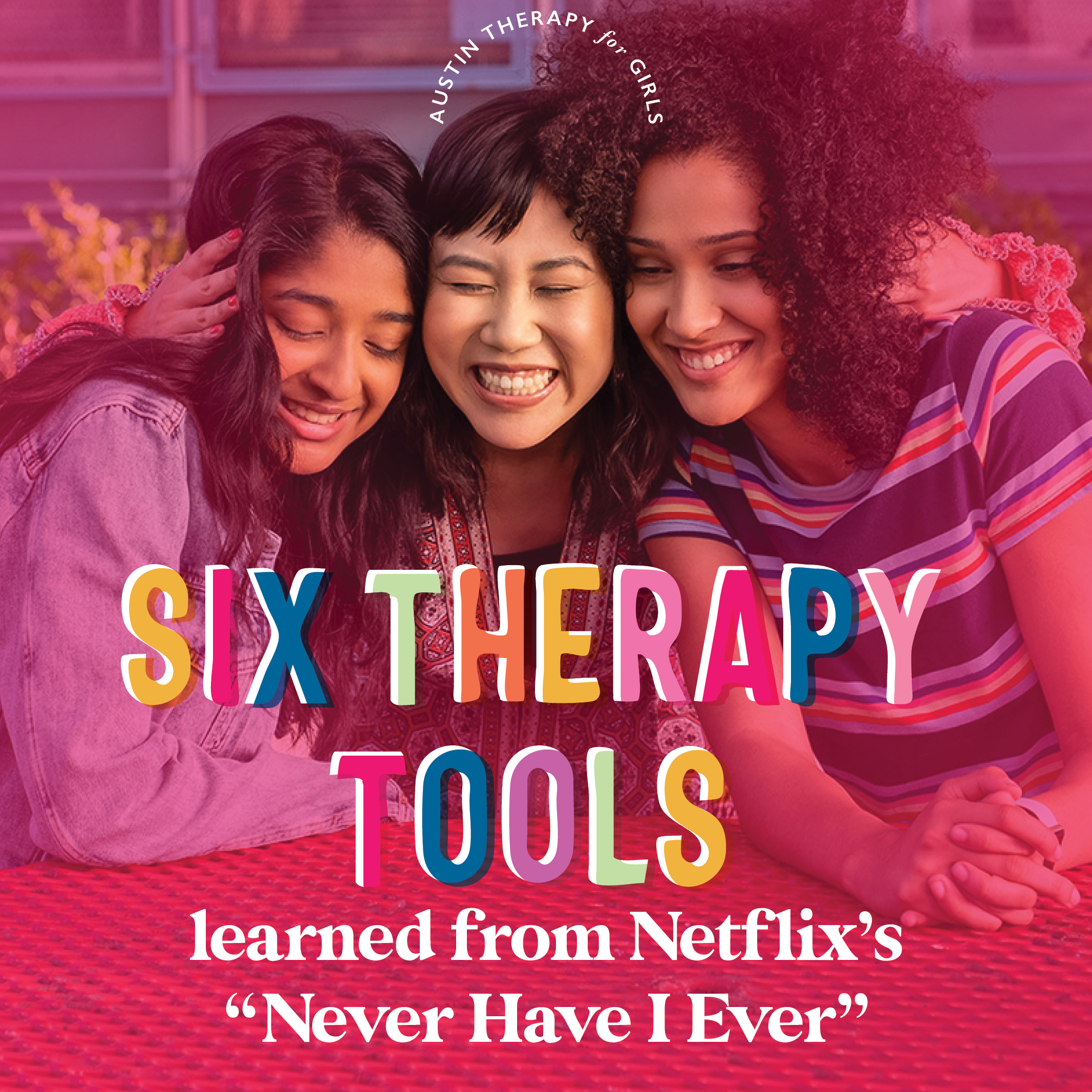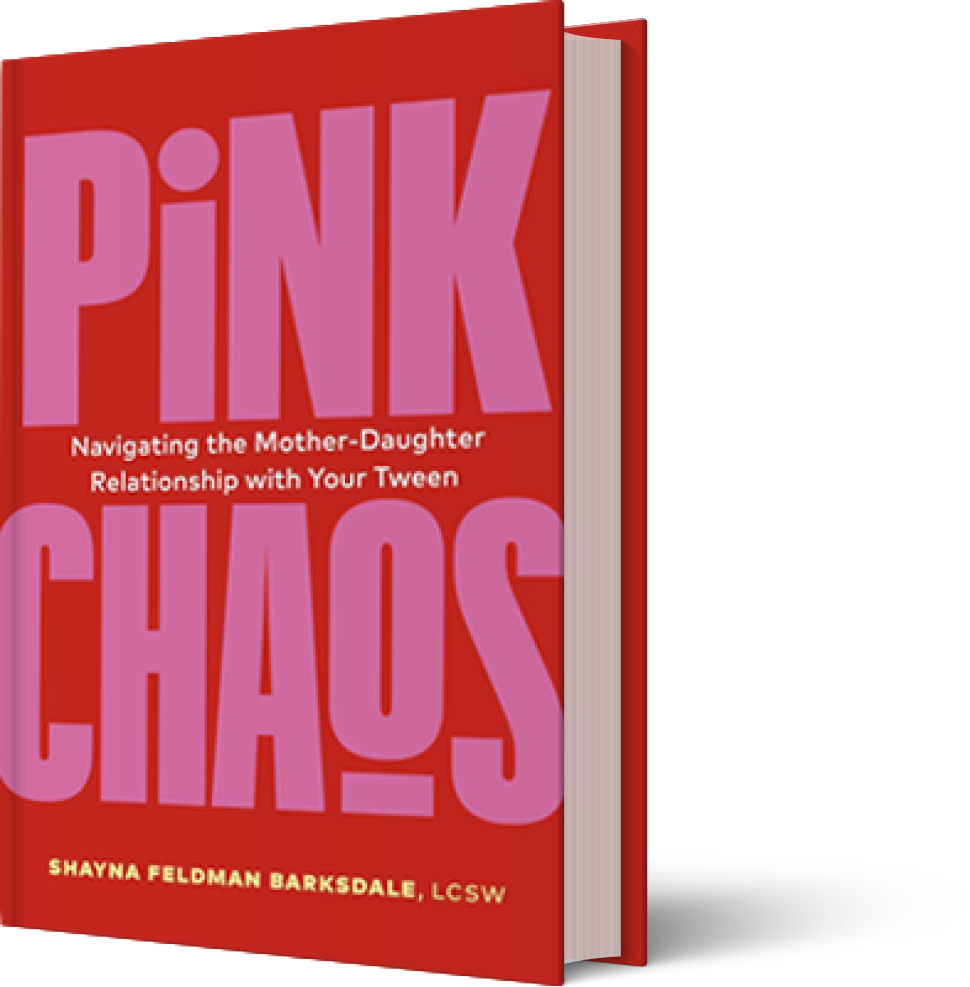Six Therapy Tools learned from Never Have I Ever Show
Move over Euphoria. There’s a new show in town – or I should say new season of a show you could actually watch with your mother.
…We’re talking about the Mindy Kaling Netflix hit Never Have I Ever. Before you get “the icks” (a term developed on TikTok and Instagram, describing the moment when attraction to a current or potential partner suddenly flips to disgust) at the thought of the game you played in middle school, take a beat. This is an AMAZING SHOW!!!!
We give full permission to binge watch the first two seasons before Season 3 hits sometime this summer…not only is it full of laugh-out-loud moments, it also has some great lessons about friendship, love and belonging.
There are so many cool storylines and lessons in this show, we couldn’t even begin to cover them all in one blog post. But here’s a quick synopsis of Season 1.
The main character is Devi, a first-generation Indian-American teenager. Aside from the challenges of being a super smart and competitive student, Devi struggles with her identity and her relationship with her mother. Devi has also suffered a great tragedy, having lost her dad her freshman year of high school when he had a heart attack at her symphony concert.
And of course, there are challenges with boys. After approaching the hottest guy in school, Paxton Hall-Yoshida, Devi finds herself stuck in a lie…and having to maintain it.
This coming-of-age show takes an honest look at many issues that teenagers face in a realistic, upli way. And did I mention that Devi has an awesome therapist, Dr. Jamie Ryan, played by Niecy Nash?
Even for those of us no longer in high school, the show feels not unlike sitting on a couch in a therapist’s office.






